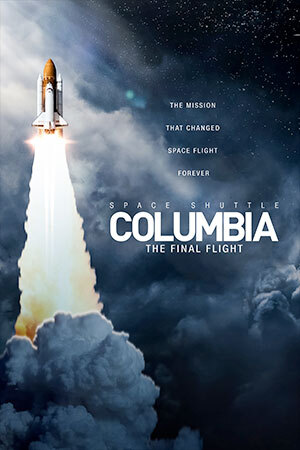14.04.2024

Forty-three years to the day after the space shuttle Columbia landed from its first mission, CNN is set to conclude airing a four-part series on the orbiter's ill-fated last return to Earth.
"Space Shuttle Columbia: The Final Flight," a new documentary co-produced by BBC and Mindhouse Productions, looks back at the winged spacecraft's 28th mission, STS-107, which ended in tragedy on Feb. 1, 2003. The program features new interviews with members of the fallen astronauts' families and some of the NASA managers and engineers who supported the flight and later contributed to learning why Columbia and its crew were lost.
"If you work in human spaceflight, this is the worst possible thing that could ever happen," says astronaut Ellen Ochoa in the third episode of "Final Flight." Ochoa was in Mission Control when Columbia broke apart as it reentered the atmosphere after a successful 16-day science mission in Earth orbit.
The first two hours of "Final Flight" debuted last Sunday (April 7) and will be aired again on Saturday (April 13) beginning at 8 p.m. EDT/PDT. CNN will then premiere the remaining two episodes at the same time the following day, coinciding with the anniversary of shuttle Columbia's STS-1 landing in 1981.
As the documentary recounts, the issue that sealed Columbia's fate was known to NASA engineers from almost the first day the orbiter took flight. Foam covering the shuttle's external tank and its connection points to the spacecraft would fall off during launch and, depending on when and from where those liberations occurred, the foam could impact and damage the orbiter.
It was just such an occurrence that left a hole in the leading edge of Columbia's left wing, allowing hot plasma to compromise the integrity of the orbiter's airframe, which then led to the break up of the spacecraft and the death of the STS-107 crew, commander Rick Husband, pilot Willie McCool, mission specialists Laurel Clark, David Brown, Michael Anderson and Kalpana Chawla and Israeli payload specialist Ilan Ramon.
"I didn't know at the time that anything concerning had happened," says Sandra Anderson, Michael's wife. "There were people who did, though."
As the accident investigation revealed, engineers at NASA were aware of the foam strike soon after it occurred on Jan, 16, 2003, and immediately began questioning whether it posed a risk to the safety of the vehicle and the crew. Rodney Rocha, who was the chief structural engineer for the shuttle, was among those who asked for and was denied the use of military assets, a.k.a. spy satellites, to provide the imagery needed to determine how severe the damage was from the foam impact.
"I was recounting all of the pushback we were getting from management, two weeks of just utter frustration and anger," said Rocha, describing a conversation he had with his wife on the night before Columbia's reentry.
The NASA managers who set aside Rocha's concern and who still dismissed the foam as the cause of the tragedy even after Columbia was lost were unable to be reached and so were not interviewed for "Final Flight," according to CNN.
In addition to focusing on the cause of the tragedy, "Final Flight" also profiles the STS-107 astronauts through the memories shared by spouses and children, as well as the last footage taken of them aboard space shuttle Columbia. Mark Kelly, who is now a U.S. senator, is also interviewed as several crew members were his friends, having been selected together to become astronauts.
Kelly was also the first person from NASA to arrive in East Texas, where the debris from Columbia and the remains of the crew had fallen from the sky.
"There were pieces of space shuttle, thousands and thousands of pieces all over the place," says Kelly. "This was not something I was trained for."
"Space Shuttle Columbia: The Final Flight" (which was previously released in the UK as "The Space Shuttle That Fell to Earth") concludes with a look at the space shuttle's legacy and what NASA is doing to ensure that the STS-107 crew's deaths were not in vain.
"Our viewers have long been fascinated by stories of space exploration," said Amy Entelis, an executive vice president at CNN Worldwide, in a statement. "This chapter in the space shuttle program captured the nation's attention and is equally as captivating in the retelling."
Quelle: CS

